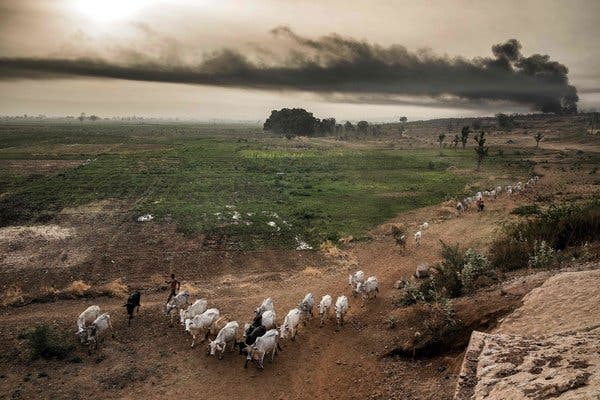Introduction
Climate change poses a serious danger to the global food security, due to its direct and indirect effects on food availability and production. Crop yields are declining as a result of rising temperatures and extreme weather events, which are causing a rise in food insecurity. Extreme weather conditions, natural calamities, and economic and social unrest can have a severe impact on food availability. It is crucial to lessen the effects of climate change in order to alleviate global food insecurity by lowering emissions, using more effective and sustainable agricultural techniques and funding initiatives that advance food security.
Global Food Insecurity
Food insecurity (FI) describes the lack of consistent access to enough food for every person in a household to live an active, healthy life. A significant problem the world is currently confronting is global food insecurity. It is a condition that is characterized by a lack of economical, nutritious, and safe food options, which can cause hunger and malnutrition. The number of people impacted by global food insecurity increased from 135 million in 53 nations in 2019 to 345 million in 82 countries in 2022, according to an article published by the World Economic Forum. Global food insecurity is exacerbated by climate change, which has an impact on food production and delivery systems by increasing food prices while reducing the availability of food. According to the World Bank, as a result of the conflict in Ukraine, supply chain disruptions, and the ongoing economic effects of the COVID-19 pandemic, the number of people experiencing acute food insecurity has increased significantly. There are approximately two billion malnourished people in the globe, and by 2050, it is predicted that humanity will need 60% more food to feed everyone. To fulfill the expanding demand, however, the agriculture sector still lacks the necessary resources.

Impacts of Climate Change on Food Security
Food security is significantly and directly impacted by climate change. Due to changes in weather patterns, environmental disruptions and extreme weather events like floods and droughts, not only causes crop failure and famine, but also impacts and challenges the food security. The impacts of climate change on the global food supply are extensive. Food production is impacted by a variety of climate change-related factors including increased temperatures, more frequent droughts, decreasing soil fertility, floods and storms. Before the situation gets worse, action must be taken to curb food insecurity brought on by climate change. Governments and organizations on a local, national and international level must take proactive measures to develop food strategies that can better withstand climate variability in order to reduce the negative effects of climate change on food security. It can be accomplished through increasing investment in climate-resilient agriculture, promoting sustainable food systems i.e. including regenerative agriculture, improving food waste management and encouraging local food production. Furthermore, it is important to invest in adaptation and mitigation strategies that can help to reduce the impacts of climate change on global food insecurity.

Research Associate, Pakistan House



